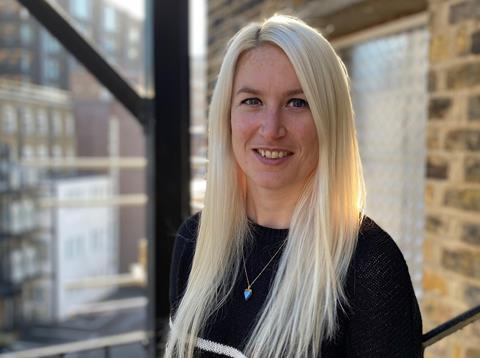We need to collaborate more to ensure we come up with the best solutions, writes Anna Beckett

So you’ve had a really great idea for a new technology that can reduce carbon in the construction industry. You’ve been working on it for a few months and it’s almost finished. Your company are excited. They’ve prepared a press release and even though they plan to share the technology they know they’ll get some good publicity from this.
With the system functioning well you share the achievement with the rest of the industry and, lo and behold, it turns out another company has been working on something really similar. And actually, theirs works a little better than yours although perhaps is not so easy to install.
Now both companies want to present their system as the best, the most efficient, because now the two systems are in competition. But imagine if you’d both known that you were working on similar projects a little sooner. If you’d collaborated earlier, you could have created a system that really was better and both companies could have promoted it as a joint project.
Often that competition is healthy
The problem is that we’re all working for private companies that are, of course, trying to make money. And no matter how hard we try, it’s impossible to separate ideas that might advance the industry or improve sustainability from our commercial interests.
Often that competition is healthy - it pushes us to make something better – but it also means we keep our ideas to ourselves. We want to protect our intellectual property because we’ve worked hard to develop it and it’s a product that our clients want.
When it comes to solutions that will help with sustainability, we’re all racing against the clock. The urgency of the climate emergency demands that we reduce the amount of carbon that we’re using but we’re an inherently slow-moving industry.
So what could we do?
We’ve designed structures in steel and concrete in relatively similar forms for most of the last century and there’s a lot of resistance to change. New technologies (rightly) need a lot of research, development and testing to ensure they can be used safely.
So what could we do? How can we balance what makes sense for a business with what makes sense for the planet? Perhaps the easiest change would be to talk about what we’re doing when we start thinking about it rather than when we finish, so that we can ensure we’re collaborating rather than working in isolation.
There are lots of institutions and working groups that are doing great work in trying to move the industry forward and share the work that’s being done. But if we’re not prepared to be a little more open, then there’s no way to know if we’re all putting our energy into solving the same problem rather than needlessly hindering our own efforts.
If we’re also willing to collaborate with our peers a little earlier, we can challenge our ideas
Many of the conversations around sustainability highlight the need to collaborate early in the design process as one of the key ways we can reduce carbon, but we’re generally talking about cross discipline collaboration. If we’re also willing to collaborate with our peers a little earlier, we can challenge our ideas and push for the rapid progress that the industry needs.
Asking another company to help you find the issues with something you’re developing at an early stage would introduce new ideas to the discussion as well as helping to move the research forward and could be done in a reciprocal way. But to do that you’d have to admit that you need some help, or that another company can offer something that you can’t.
If we’re going to accelerate progress in the industry in order to move towards lower carbon design then we have to start to think about intellectual property in a different way. We have to be more open with our ideas and find a way to approach the problem as an industry rather than as a group of separate private companies.
Postscript
Anna Beckett is an associate director at Symmetrys
















No comments yet